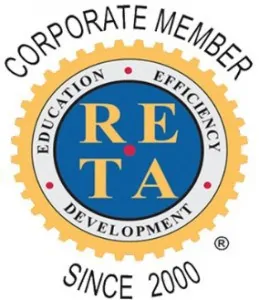

When developing new projects involving flammable substances, reviewing various chemical safety regulations for applicability early in the design process is important. Otherwise, technical studies and safety documentation requirements could delay project permitting and approval.
For example, climate change drives the need for alternative, low-carbon fuels such as hydrogen. Hydrogen production and storage facilities with more than 10,000 pounds on-site must comply with regulations such as:
Best Practices for RMP and PSM Compliance
First, SCS Engineers (SCS) reviews federal and state chemical safety regulations for any exemptions that may apply, including:
SCS then develops RMP, PSM, and state-compliant prevention programs as required for:
SCS recommends conducting a Hazard and Operability Study (HAZOP) for the PHA based on the American Institute of Chemical Engineers (AIChE) HAZOP Guide Word method. Guide words specify deviations from normal operating conditions or parameters and spark discussion of engineering controls, administrative controls, and emergency procedures.
In addition, SCS recommends using multiple safety checklists to review human factors, external events (including facility siting), and potential emergency planning and response procedure changes.
Where safety is lacking or needs improvement, SCS focuses on identifying appropriate mitigation measures. SCS then uses the PHA results to conduct the Hazard Assessment / Offsite Consequence Analysis for the worst-case and alternative flammable release scenarios resulting in fire or explosion.

Additional Resource: Risk Management Plans-RMP and Process Safety Management-PSM

Meet RETA Authorized Instructor (RAI) Daryl Davis. Davis joins the SCS Tracer Environmental training team providing ammonia refrigeration safety, Risk Management Plans, and Process Safety Management certified training.
This SCS team offers comprehensive programs including Ammonia Refrigeration Operator Classes, RETA Certification Review Classes, PSM/RMP & General Duty Clause Safety & Compliance Classes for Ammonia Refrigeration Facilities, Continuing Education, & Custom Training Classes.
SCS’s RAI’s have over 56 combined years of industrial refrigeration expertise. Our trainers use an online delivery system with a live instructor, or on-site, in-person classes, to ensure you continue training for Process Safety Management & Risk Management Program compliance. Hands-on site training can now take place under even noisy plant conditions using high-tech headsets.
RAI – RETA Authorized Instructors have certifications in their mastery teaching advanced refrigeration system concepts and operations at a level that qualifies them to assist CARO, CIRO, CRST, and CRES candidates with their preparations and activities required to earn RETA credentials.
Get the latest in RETA certified training news and classes. The Refrigerating Engineers and Technicians Association (RETA) is the most recognized organization in the U.S. dedicated to the professional development of industrial refrigeration operators and technicians.
That’s Bill Lape in a word. Bill is a Certified Industrial Refrigeration Operator, a Certified Refrigeration Service Technician, and a member of the National Board of Directors of the Refrigerating Engineers and Technicians Association – RETA. He is also a certified Process Safety Management Professional through the University of Wisconsin.
PSM SAFETY & COMPLIANCE CONSIDERATIONS IN THE AGE OF PANDEMICS PSM safety programs and training remain a top priority during the pandemic. While online training is not a complete substitute for live, face-to-face PSM training and instruction, in the age of pandemics, it is a viable option. What to look for in PSM – ammonia refrigeration system safety training?
EPIC FAIL: ICE BUILD UP When developing your inspections for your system’s mechanical integrity program, always be mindful of the potential consequences of ice buildup, particularly if it continues for an extended period of time.
SCS Engineers welcomes Eric Girven, CRST, CIRO, and RAI to SCS Tracer Environmental, the firm’s practice specializing in industrial refrigeration and environmental management plans and systems.
Eric Girven serves public and private clients in the eastern United States providing expertise in process safety management and energy management with a focus on industrial refrigeration facilities. Industrial refrigeration operates in conformance with regulations administered by the Occupational Safety and Health Administration’s (OSHA) Process Safety Management (PSM) and the Environmental Protection Agency’s (EPA) Risk Management Program (RMP).
Eric assists clients in complying with these requirements, including mechanical integrity inspections for the ammonia refrigeration system, as well as assistance with energy efficiency measures.
“Eric’s energy-saving strategies streamlines operations and energy programs,” said Lee Pyle, an SCS Engineers Vice President and Project Director of the PSM and RMP programs. “Eric’s national and international certifications and his expertise are a welcome part of our industrial safety professional team.”
Reflection, as a means of self-evaluation of the robustness of your refrigeration management system, is critical to the continuing success of your program.
Proper planning is another vital element of your program. Together, they will help ensure the continuing safety of you, your employees, and the public.
Bill Lape, a Certified Industrial Refrigeration Operator and a member of the National
Board of Directors of RETA is a Project Director for SCS Engineers. In his most recent article, Bill provides advice to use January and early February as a time of reflection and a planning period. We need to look closely at our ammonia refrigeration management programs, be they Process Safety Management (PSM) / Risk Management Plan (RMP) or Ammonia Refrigeration Management (ARM) for facilities with less than 10,000 pounds of
ammonia in their process.
Click to read the article, and thank you for interest in maintaining safety standards.
Process Safety Management, Risk Managment Plans, Ammonia Refrigeration Management information.
Modeling for a Worst Case Release and the Alternative Release Scenario – not so mysterious after all. Lee Pyle explains it to you in her recent article in the RETA Breeze. Lee is SCS Engineers National Expert on Industrial Risk Management Plans and Process Safety Management.
All of us with over 10,000 pounds of ammonia in our plant system are well aware of the EPA Risk Management Program Hazard Assessment requirements (40 CFR Part 68.20). When the EPA inspector shows up, we hand them the manual and cross our fingers that they understand what they are reading and pray they do not ask a question.
Do not fret; chances are that the inspector at your plant is probably not much more fluent in dispersion modeling than you are. Much debate occurs over how long it would take to stop a release, but you do not want to get into a debate with an EPA inspector.
Read, share, or print Unmasking the Mystery of the Worst Case Release and the Alternative Release Scenario here. Happy Modeling!
Using a simple example the authors make apparent the importance of understanding a refrigeration system’s actual performance. An energy balance is a very useful tool to do so.
Not only do PSM regulations require that facilities have this in your PSM program, there is real value in understanding a system’s capacities. Operation and efficiency translates to substantial dollar savings every year. Savings that can be reinvested in your facility.
Calculating the total consequences of an unbalance system is more complex, but there are considerable savings running a properly energy balanced refrigeration system. Savings that can fund maintenance needs and avoid postponing timely repairs.
This white paper, presented at the RETA 2017 Conference in Pennsylvania is available in English and Spanish by clicking here.
Learn more about environmental and engineering services for Process Safety Management (PSM), Risk Management Plans (RMP), and ammonia refrigeration safety at SCS Engineers.

Click to see Risk Management Plans and Process Safety Management services at SCS Engineers